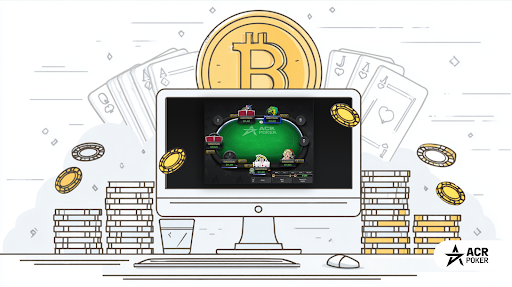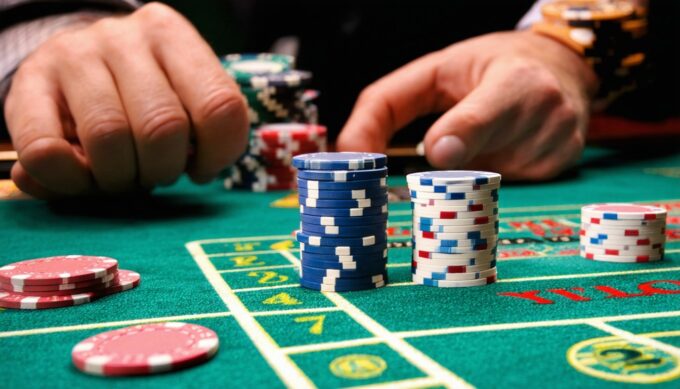With online gambling on the rise, the allure of anonymous casinos—platforms where users wager without sharing personal data—has grown sharply. Marketed as havens of privacy and untraceable gaming, these sites promise user autonomy and a shield against identity theft. Yet beneath the seemingly benign surface, experts are beginning to sound alarms about the mental health consequences of sustained, long-term use. The silent anxiety cost of long-term anonymous casino use is less visible than financial losses, yet, for many, more profound.
While discussions about gambling risk often center on regulation, addiction, and money, the intersection of anonymous digital platforms and mental well-being remains underexplored. How does perpetual anonymity and the unresolved uncertainties it breeds affect mental health? Real-world reports and mental health research hint at a more complex, and troubling, picture.
Understanding Anonymous Casinos: Features, Appeal, and Prevalence
Anonymous casinos operate on a distinct principle: minimal to no identity verification. Users often deposit and withdraw cryptocurrencies, further anonymizing their transactions. These platforms frequently attract individuals seeking privacy for various reasons—concerns over data leaks, regulatory scrutiny, or simply the thrill of secrecy.
Recent industry surveys show that a substantial share of online gamblers are at least curious about anonymous platforms. One motivation is the desire to avoid self-restriction databases or credit checks required by regulated sites. The sense of freedom can, however, be a double-edged sword.
Why Players Choose Anonymity
- Data security: Many users are wary after widely publicized breaches.
- Social stigma: Some wish to prevent gambling from appearing on bank records.
- Escape from oversight: Anonymity allows uninterrupted gambling, without intervention from authorities or family.
The Psychological Impact of Extended Anonymity in Gambling
On the surface, anonymity may seem liberating. Users feel shielded from surveillance and, presumably, judgment. Yet, psychologists warn that isolation and lack of accountability can generate a unique strain over time.
“Without meaningful social cues or feedback, anonymous gamblers are at higher risk for psychological distress—including heightened anxiety and compulsive behaviors,” notes Dr. Elena Markovic, a clinical psychologist who researches digital addiction.
“Prolonged engagement in anonymous online activities, especially those tied to reward cycles like gambling, can deepen a cycle of secret-keeping and unresolved tension,” Dr. Markovic emphasizes. “This manifests as social withdrawal, persistent worry, and even depression.”
Key Drivers of Anxiety in Long-Term Anonymous Casino Use
- Continuous Uncertainty: Without ties to a real-world identity, users report frequent doubts about withdrawal reliability, game fairness, or recourse if issues arise.
- Absence of Social Anchoring: There are no external warning signals—a friend noticing risky behavior, a bank flagging problem spending, or a support group.
- Guilt and Secrecy: Hiding financial activity and prolonged gaming from friends or family can intensify anxiety and feelings of guilt.
Real-World Examples: The Silent Burden Behind the Screen
Case studies across addiction centers reveal that many long-term anonymous casino users do not initially recognize the source of their stress. Take “Mike,” a pseudonymous crypto trader in his thirties. The “total privacy” that drew him to anonymous betting platforms ultimately became a stressor: he spent years hiding intermittent losses and struggled to sleep, worried about whether he could recover his funds or fend off online scams. Over time, Mike’s relationships and work performance suffered—not due to catastrophic loss, but from persistent background stress and the mental logistics of maintaining secrecy.
This unseen tension is echoed by support groups. Online forums host anonymous gamblers who express constant fear: not just of losing money, but of exposure, operational risks, and the inability to seek help.
Trends and Data: The Growing Recognition of Mental Health Risks
While hard numbers are elusive given the very premise of anonymity, research into digital gambling and privacy culture offers instructive parallels. Several recent public health studies reported that online gamblers who use platforms without identity checks exhibit significantly higher symptoms of anxiety and depression than those using regulated alternatives.
A European gambling hotline survey found that a notable portion of anonymous casino users reported feelings of helplessness and isolation after periods of sustained use. Experts suggest that this silent psychological toll tends to be cumulative—building slowly as the user’s private world becomes more cut off from social and emotional anchors.
The Role of Crypto and Decentralization
Cryptocurrency, a core component of most anonymous casinos, introduces its own layer of unpredictability. Market fluctuations, wallet security concerns, and the irreversibility of crypto transactions can further exacerbate stress for regular users.
Coping Mechanisms and Support: Breaking the Silence
Awareness of the silent anxiety cost is the critical first step. Resources for those wrestling with the mental burden of anonymous casino use are emerging, but gaps remain. Responsible gambling tools, effective on licensed platforms, are largely absent in many anonymous settings.
Some support avenues include:
- Confidential helplines and online counseling: Available in many countries, offering accessible, judgment-free support.
- Peer support groups: Forums where former or current anonymous gamblers share coping strategies.
- Personal boundaries and reflective check-ins: Regularly evaluating one’s own behavior outside the cues offered by external regulation.
“The cloak of secrecy can make seeking support feel impossible,” summarizes addiction counselor Rachel Lim. “Even private conversations with a professional can offer a lifeline when anxiety starts to take hold.”
Navigating the Future: Industry and Policy Responses
As anonymous gambling platforms expand, industry leaders and policymakers face pressure to address these silent harms. Some forward-thinking operators have started to integrate voluntary self-exclusion tools or pop-up reminders about healthy play—even on anonymous sites.
However, the decentralized, cross-border nature of these platforms complicates enforcement and consistent standards. Public awareness campaigns and robust digital mental health resources may play the largest role in bridging the gap.
Conclusion: From Invisible Risk to Informed Choice
The silent anxiety cost of long-term anonymous casino use is an evolving public health challenge, not just a niche concern. While anonymity offers real benefits for user privacy, it carries psychological risks that are too often overlooked—ranging from ongoing anxiety and guilt to social disconnection.
Recognizing, discussing, and supporting those affected is essential. Whether through personal boundary-setting, seeking confidential help, or advocating for better industry safeguards, reversing the silent toll begins with bringing it into the open.
FAQs
What makes anonymous casino use riskier for mental health than traditional gambling?
Without transparent oversight or social accountability, users face higher risks of isolation, unchecked gambling patterns, and persistent anxiety about their activities and finances.
Are there any dependable safeguards on anonymous casinos for responsible gambling?
Most anonymous casinos provide fewer safeguards than regulated sites. While some may offer session reminders or deposit limits, enforcement and efficacy are limited compared to licensed platforms.
How can a person reduce anxiety if they’re already using anonymous casinos long-term?
Seeking confidential support, setting personal limits, and regularly reflecting on gambling behavior can help. Professional counseling—even anonymously—can make a meaningful difference.
Is cryptocurrency gambling especially stressful compared to fiat-based online casinos?
The volatility and irreversibility of cryptocurrencies add unique stressors, such as the risk of losing funds due to price swings or transaction errors, compounding the anxiety of anonymous play.
Why don’t more people talk about the mental health risks of anonymous online gambling?
Stigma, secrecy, and the fundamental premise of anonymity make it difficult for affected individuals to share their experiences or seek help, leading to the ‘silent’ aspect of these risks.
Can regulators do more to protect users of anonymous casinos?
Regulatory bodies face challenges due to the decentralized and cross-border nature of these platforms. Public education and robust digital health resources are currently the most effective tools.














Leave a comment